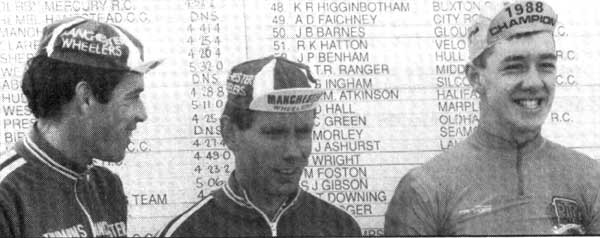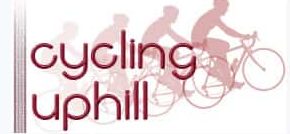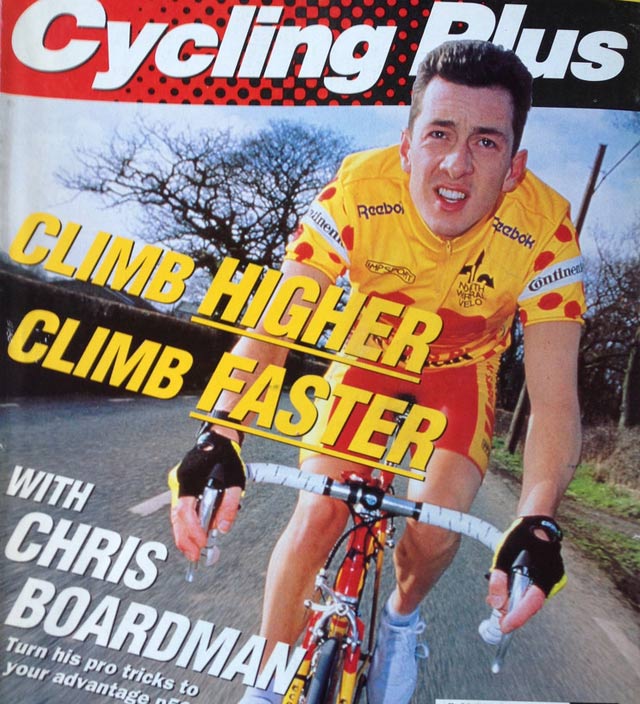 A few weeks ago, I received a review copy of Chris Boardman’s autobiography. This week I got around to reading and enjoyed the book. In terms of cyclist autobiographies, this ranks quite highly. It is interesting story, with many different aspects of cycling from domestic time trials to wearing the yellow jersey in The Tour de France. As well as his cycling achievements (and failures) you get a glimpse into the personality of Chris Boardman, and perhaps what he has learnt in life. There is a degree of humour and honesty which make the book an enjoyable read. If I had to choose a cyclist from that period of cycling who I genuinely admire, Chris Boardman would be near the top of a very short list. There is also the added interest of the fact that I can relate strongly to his early career (riding domestic time trials and hill climbs) I have followed Boardman’s career from the epic time trial battles with Graeme Obree reported in “Cycling Weekly” to his emergence as a sane and powerful advocate for better cycling on British roads.
A few weeks ago, I received a review copy of Chris Boardman’s autobiography. This week I got around to reading and enjoyed the book. In terms of cyclist autobiographies, this ranks quite highly. It is interesting story, with many different aspects of cycling from domestic time trials to wearing the yellow jersey in The Tour de France. As well as his cycling achievements (and failures) you get a glimpse into the personality of Chris Boardman, and perhaps what he has learnt in life. There is a degree of humour and honesty which make the book an enjoyable read. If I had to choose a cyclist from that period of cycling who I genuinely admire, Chris Boardman would be near the top of a very short list. There is also the added interest of the fact that I can relate strongly to his early career (riding domestic time trials and hill climbs) I have followed Boardman’s career from the epic time trial battles with Graeme Obree reported in “Cycling Weekly” to his emergence as a sane and powerful advocate for better cycling on British roads.
If any cyclist epitomises the spirit of British cycling it is Chris Boardman.
- Domestic time triallist, multiple national champion – from national hill climb to national 25 mile TT competition record holder.
- Olympic track cyclist. Gold medal in 1992 Barcelona Olympics (Britain’s first gold on track for 72 years).
- Three times world hour record holder.
- Multiple world champion on road and track.
- First British wearer of yellow jersey since Tom Simpson in 1968.
Even post-retirement Boardman has hardly stopped.
- Key figure in development of British Cycling as dominant force in track cycling post retirement. Worked in British Cycling’s ‘Secret Squirrel Club’
- Founder of Boardman bikes.
- Leading spokesperson on cycling advocacy.
Boardman has an impressive CV, and one thing you pick up from autobiography is a restless, inquisitive chap with boundless energy. The book could have been labelled the ‘many lives of Chris Boardman.’
Chris Boardman ‘Superman position’
Obssessive sportsman
It’s not all about listing off achievements. You get an insight into the difficult years, poor results and also Boardman’s obsessive sportsman personality. The most interesting thing in book is how post-retirement, he became more aware of different perspectives of approaching life – a more rounded approach than obsessive self-oriented goals of a sportsman. For the many sporting obsessives who get sucked into their own career and performance would benefit from reading Boardman’s perspective. One important aspect of the book is Boardman’s attempt to find balance in life – something he’s not always been successful in doing.
***
My favourite part of the whole book is the confession that – the night after his wedding – he got up at 5.30am to do a hill climb on ‘Nick ‘O Pendle’. It wasn’t even a national championship – it was an open event but the only chance to ride course before the big event later in the year. This is dedication to the hill climb cause. A few weeks later (1988) Boardman who the first of his three national hill climb titles on the Nick O Pendle.

***
Boardman rode through one of the darkest eras of professional cycling. Turning pro in 1993. Leaving the sport in 2000. It was an era of insufficient drug controls, and and explosion in the use of new drugs like EPO. I’ve read so many ‘confessional drug autobiographies’ I took a vow – after reading Tyler Hamilton’s book – I would never read another. I’ve had my fill of doping confessionals for a lifetime, so it is kind of rare to read an autobiography from that period where you can have faith in the athlete. Boardman writes very little about doping per se. He briefly mentions the unpredictability of results and how in late 1990s, unexpected riders could suddenly start to produce very impressive time trials. Boardman noted how it got harder and the speed in the mountains was something he could never live with (despite obsessions over weight). Boardman’s main point is to describe how (after he crashed out of 1998 prologue) the Festina crisis exploded a few days later. He writes this directly after ‘the unpredictability of results’. But, that is about it. It would have been interesting to hear more thoughts on this subject, but from what I’ve heard Boardman always said he didn’t want to risk his health, and that’s about it.
***
Conclusion
I read the book in a few days, and it is worth buying. It provides an interesting and humorous look at Boardman’s life and career. It also provides a good overview of the development of British cycling from the late 1980s to the present day. Although, it comes from one person’s point of view, it is as good as any for understanding the evolution of British Cycling.
Related
- Chris Boardman on hill climbs
- Chris Boardman’s autobiography at Amazon
- Chris Boardman autiobiography at Waterstones



Tejvan,
It’s 10years to the day since you won the HC title.
I met you a week before , we were both doing a recce of the course at the time and you were on the phone to cycling weekly.
I remember how friendly you were. I also told you that I thought you could win and you brushed the whole thing off.
It was great to see you winning the championship that year in the rain and wind.
I hope you are keeping well and happy.
Best wishes
Mick